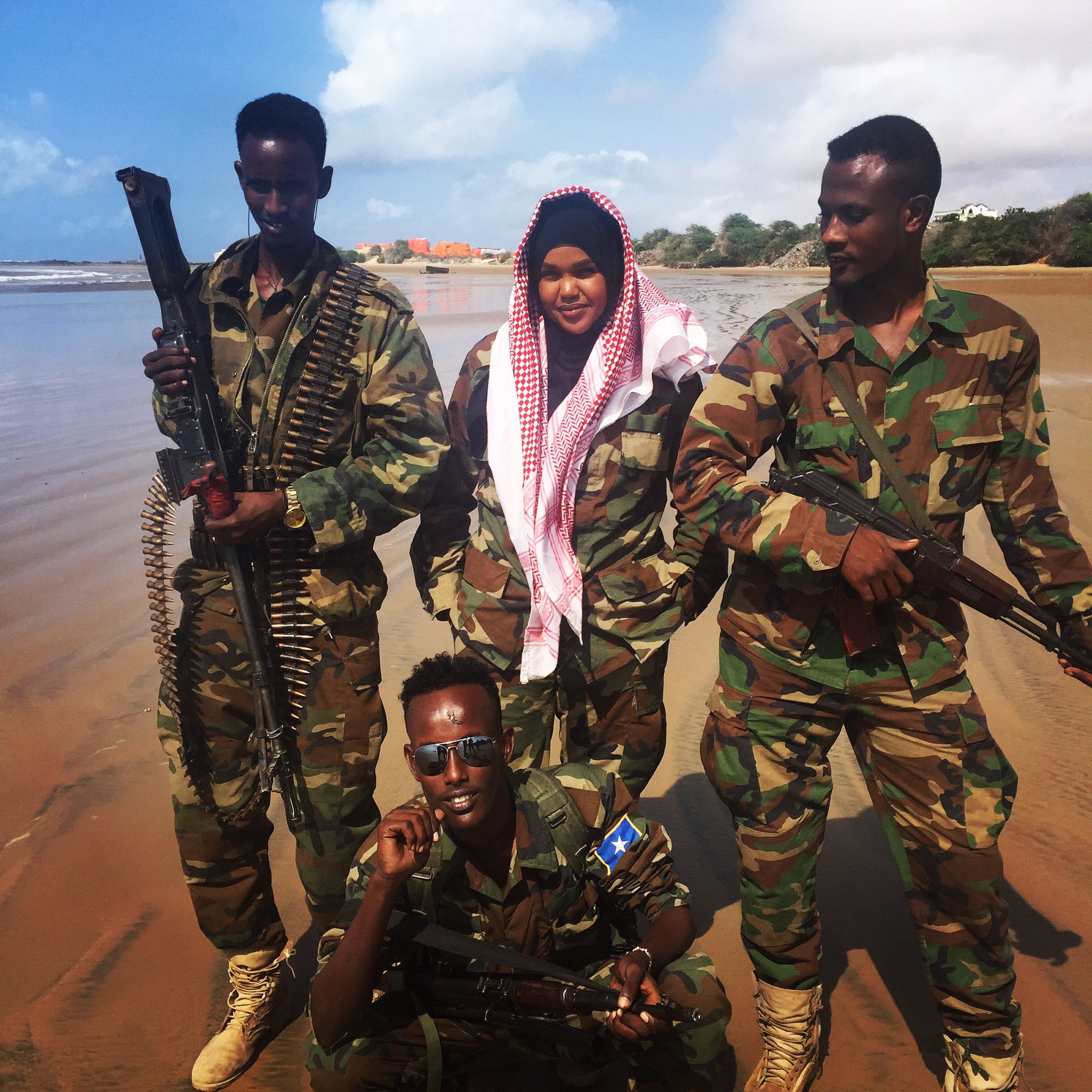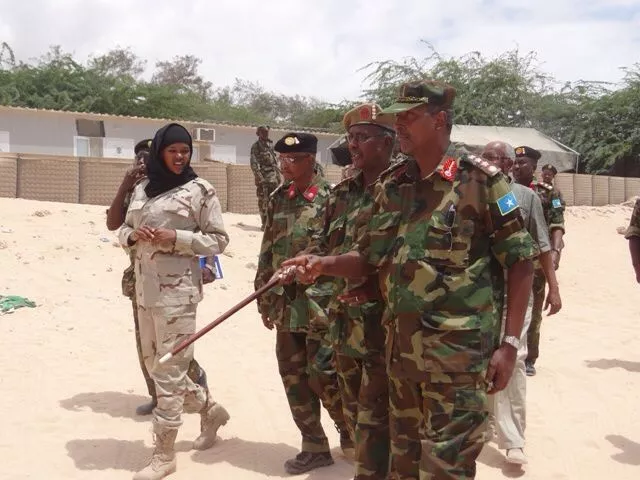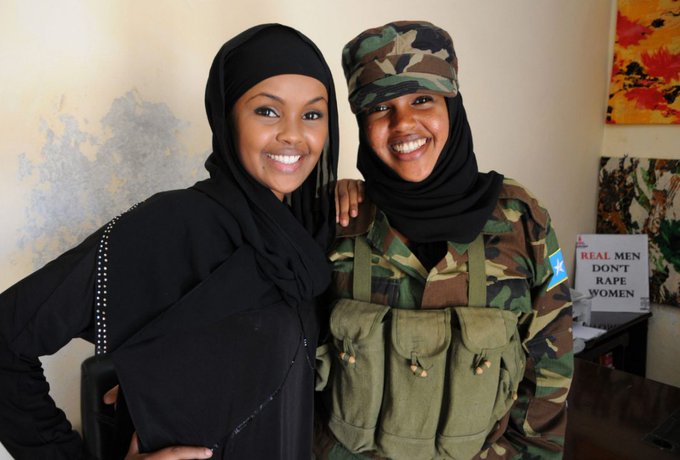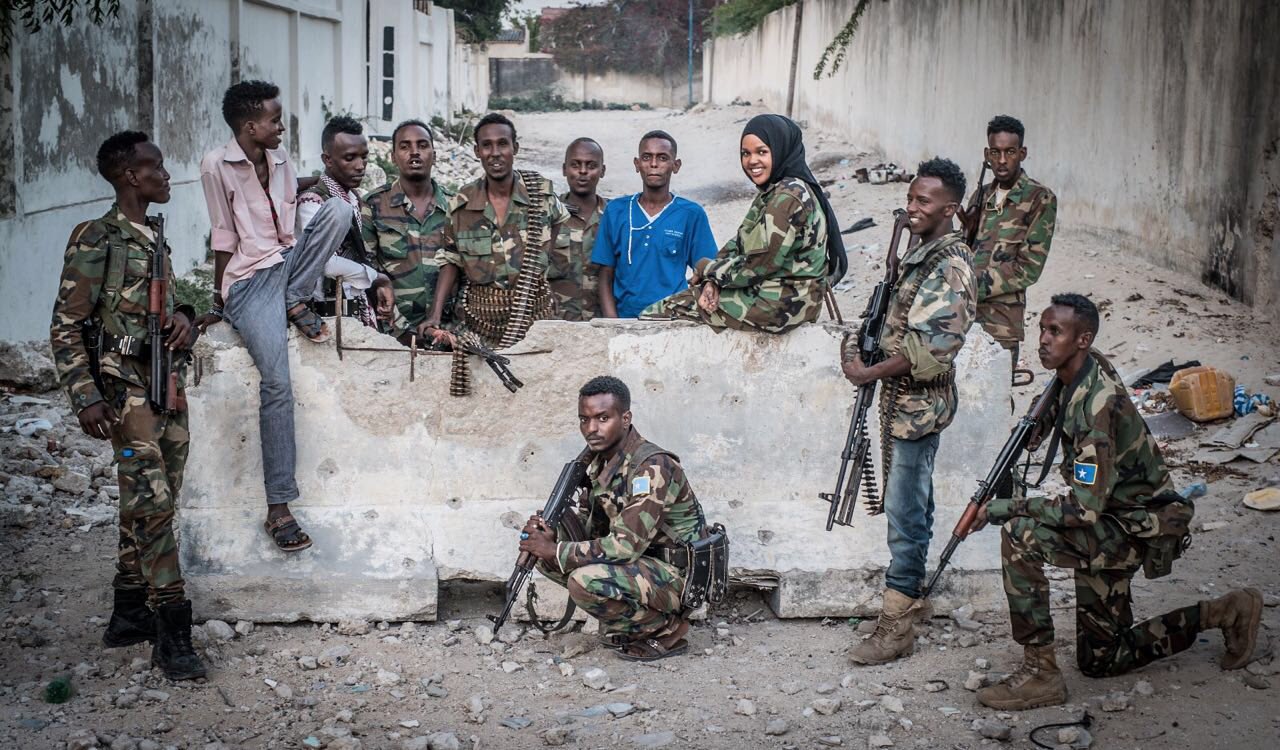Iman Elman is a female captain in the Somali National Army, making her the youngest female commander in Somalia.
Her focus is to help defeat the jihadist fundamentalist group, Al-Shabab, to improve the condition of Somali women.
Since joining the army in 2011, Captain Elman has risen to become the most prominent woman in the Somali army, but not without several challenges.
The 26-year-old had to battle with sexist behaviour and discriminatory comments so much that she was handed two pairs of trousers to sew together into a skirt instead of her regulation uniform.

For her, to defeat AL-Shabab meant she couldn’t be wearing a skirt on the frontline. “Many people thought that [a woman wearing trousers] was unacceptable and disrespectful, but I wanted to be at the front with my fellow soldiers and wearing a skirt in that situation was just not realistic,” she said.
“With Al-Shabab’s ideology, they changed the mindset of the people and you can see it’s really affecting the local people because now you have to dress a certain way,” says Elman. “A lot of the ways Somali women are dressed now is not the way they dressed 25 or 30 years ago.”
Iman Elman • | 1st woman in the Somali military who is a commander of 90 men in her battalion #PhenomenalSomaliWomen pic.twitter.com/1ItrWLGKgw
— farxiyo (@hausofriya) March 8, 2015
Even though Somalia is a Muslim majority country, the emergence of Al-Shabab has had a lasting effect on Somali women, who traditionally wore a light loose-fitting dress called a
At the time she joined the army, reports say female army recruits had increased following the ouster from the capital in 2011 of Al-Shabab.
Yet, women make up merely a small fraction of the Somali military with fewer reaching the rank of captain. Reportedly, most women are confined to basic roles, such as providing security at police stations, rather than being in frontline combat. Only a few of them are as bold as Elman to go out in pants. She does wear a traditional hijab as a mark of respect though.
Elman as a captain commands a troop of mostly male (over 90) soldiers. She’s had to work her way to the top. Elman’s journey to her current rank is an unusual one.

Born in Mogadishu, she left with her older sisters Ilwad and Almas and her mother, Fartuun Adan, for Ottawa, Canada at the age of two after the collapse of the Somali government under Siad Barre in 1991 leading to the assassination of their dad.
Upon her return to Somalia in 2007, while her mother and sister reignited the Elman Peace and Human Rights Center, Elman observed as Al-Shabab tore Somalia apart and that spurred her on to join the military.

“People find it ironic that I decided to pick up the gun, but we’re still striving for the same goal, we still want peace for the Somali people. I’m a strong activist, I work hard in trying to protect women’s rights, and I feel I can do that by being a role model and being at the frontline,” she told Newsweek.
While the rest of her family worry for her safety, Elman says they admire the path she has chosen. “They are proud of me and that I am making a difference,” she says.
With the mission to curb the insurgencies of Al-Shabab, Elman splits her time between the SNA’s logistics center and out in the field leading operations looking to uncover covert Al-Shabab fighters and bases.
“I absolutely believe that the Somali people will overcome Al-Shabab once and for all,” she says.
Since a dictator was overthrown in 1991, the country got consumed in chaos and violence that had a grave impact on the Somalia state and that led the Somali forces to work tirelessly to eradicate Al-Shabab out of the capital.
The army now controls Mogadishu, the extensive seaside capital with a population of about three million.

In 2011, Somalia was ranked the fifth most dangerous nation to be a woman. However, that did not deter Elman from joining the army. She hopes to move into the policy wing of the military and become actively involved in recruiting more women to join whilst mentoring the young ones interested in joining the army.
“I know I have already inspired women and men, but I would like to see more women who are in a position of power also encourage girls by being mentors,” says Elman. “That is why I always try to prioritize young girls who come to me and ask me questions. We need to build those ladders of support between women.”
Watch her TEDx talk about how she’s fighting Al Shabaab as a woman in Somalia’s national army:










